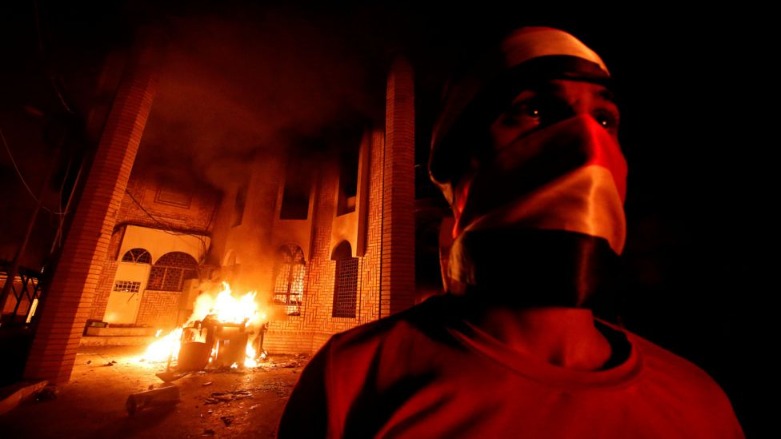Failure to hold armed groups accountable for killings will mar Iraq elections, HRW warns

ERBIL (Kurdistan 24) – International rights watchdog Human Rights Watch warned last week about armed groups targeting journalists and activists in Iraq, noting that failing to hold them accountable could cast a shadow over the upcoming Iraqi elections and spread a climate of fear among protesters who have called for change since October 2019.
HRW said in a report published on Thursday that the failure of Iraqi authorities to take urgent steps to stop extrajudicial killings of protesters and activists would have a chilling effect, and limit the ability of Iraqis to participate in the parliamentary elections scheduled for Oct. 10.
Belkis Wille, a researcher in the organization's Crisis and Conflict Division, said that the killings have continued over the past year and a half, despite a reduction in the number of protests in Iraq.
She added that the reports from the Independent High Commission for Human Rights in Iraq indicate that 81 assassination attempts against anti-government activists and journalists have been recorded since the start of the demonstrations. Of these, 34 were successful, and one-third of the killings have occurred since Prime Minister Mustafa al-Kadhimi came to power nearly a year ago, according to Wille.
Many of the killings and kidnappings have targeted those people who have been leading the voices during the demonstrations, as well as journalists who covered current events in Baghdad and other protest centers throughout Iraq.
Wille stressed that "despite the seriousness and scope of the ongoing campaign of assassinations, the government of Iraqi Prime Minister Mustafa al-Kadhimi has failed to ensure any accountability or justice."
Wille described the armed groups as having become "so insolent that the militants are not afraid to approach someone in the middle of the street in a major Iraqi city and shoot him without fear of any consequences."
The researcher warned of a "bleak" future awaiting Iraq, given that “many of the armed groups behind the recent killings have political parties, some of which are already in parliament."
She added that these parties "may be able to use the upcoming elections to entrench themselves among the ruling elite," noting that "the greater the ability of these groups to enter the ruling structure and curb efforts to stop the killings and provide justice to the victims, the bleaker the future of Iraq appears."
Since the outbreak of protests in Iraq in October 2019, more than 80 activists have been assassinated or targeted by would-be killers, while dozens of others have been kidnapped for short periods.
In July 2020, a member of the political elite in Baghdad, and a close ally and adviser of the prime minister specializing in extremist groups, Hisham al-Hashimi, was assassinated in front of his children in Baghdad.
No one has claimed responsibility for these attacks, whose perpetrators often disappear under the cover of night, but the activists point the finger at Shia "militias" in a country where the influence of armed factions, backed by Iran, is gaining control over the political scene.
On May 9, Ihab al-Wazni, the coordinator of the anti-government protests in the southern Shia city of Karbala, was killed on his way home.
Twenty-four hours later, journalist Ahmed Hussein, an Al-Furat television correspondent, was the target of assassination attempt in the same way as he got out of his car at home near the city of Diwaniyah, also in southern Iraq.
Since late 2019, countless activists from the protests have sought refuge in the autonomous Kurdistan Region’s capital, fearing the threats of armed groups at home, particularly those linked to Iran.
Kadhimi has pledged to pursue the perpetrators and directed the Ministry of Interior to "quickly reveal the killers of the civilian activist Ihab Al-Wazni," according to a statement issued by his office.
Editing by Joanne Stocker-Kelly